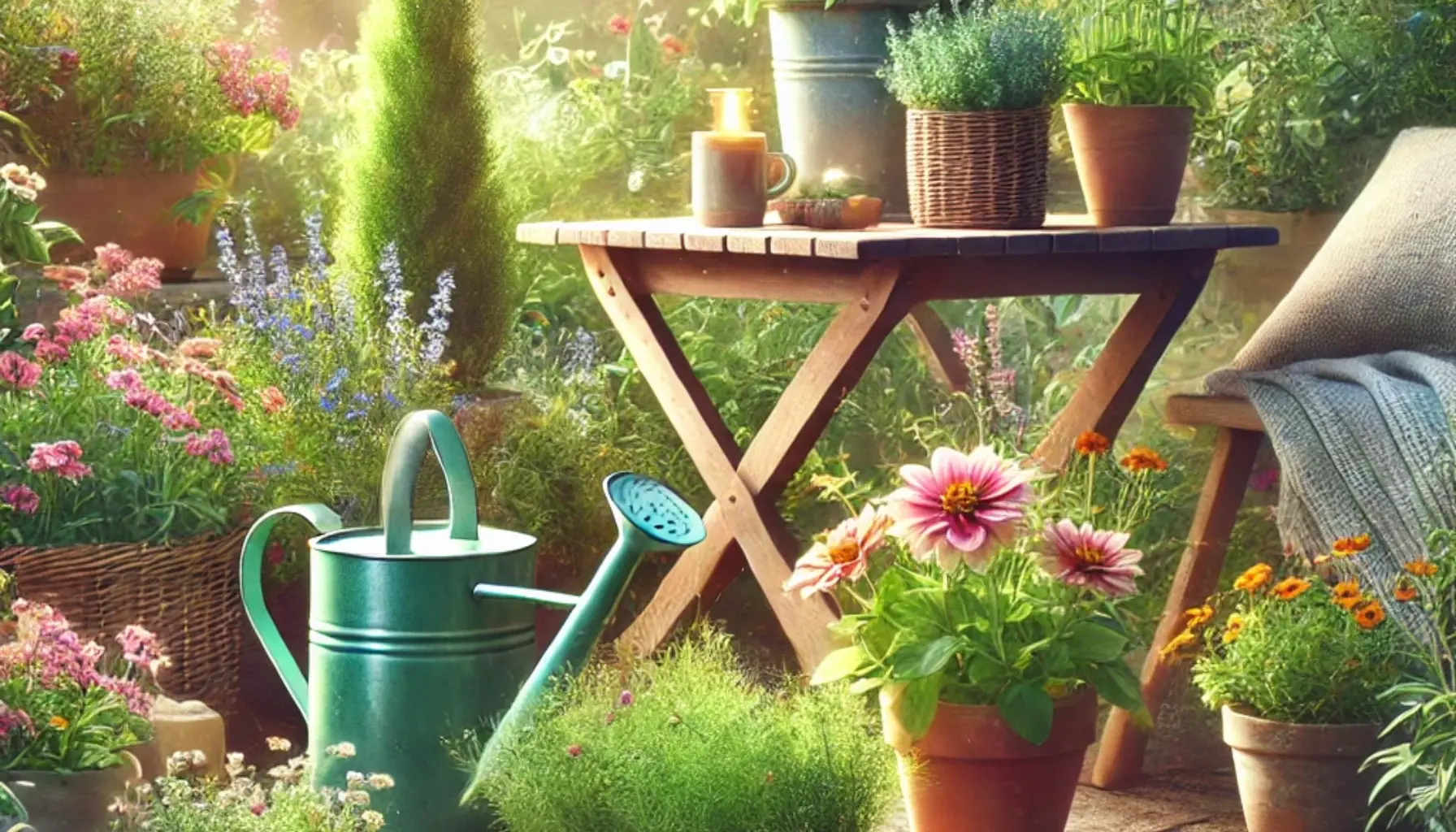Gardening is more than a hobby; it is a powerful tool for relaxation and stress relief. Engaging with nature through gardening provides a calming escape from daily pressures while fostering a sense of accomplishment. Whether you’re planting flowers or tending to vegetables, gardening offers therapeutic benefits for both mind and body.
This guide explores how gardening can help reduce stress and improve well-being, along with practical tips to incorporate it into your routine.
Why Gardening Is a Therapeutic Practice
Gardening has been recognized for its positive impact on mental health and overall well-being:
- Connection to Nature:
- Working with soil and plants fosters a grounding and calming experience.
- Mindful Activity:
- Tasks like planting, weeding, and watering encourage focus and reduce negative thoughts.
- Physical Engagement:
- Light physical activity improves fitness and releases endorphins, boosting mood.
- Sense of Purpose:
- Watching plants grow provides a rewarding sense of accomplishment.
These aspects make gardening an ideal activity for relaxation and stress management.
The Benefits of Gardening for Mental and Physical Health
Gardening has numerous benefits that contribute to well-being:
- Reduces Stress and Anxiety:
- Spending time outdoors lowers cortisol levels and promotes relaxation.
- Improves Mood:
- Exposure to sunlight increases serotonin production, enhancing happiness.
- Enhances Focus and Creativity:
- Planning and maintaining a garden stimulate the mind and encourage problem-solving.
- Boosts Physical Health:
- Activities like digging, planting, and pruning count as moderate exercise, improving flexibility and strength.
- Promotes Mindfulness:
- Gardening encourages being present, helping to disconnect from stressors.
By integrating gardening into your lifestyle, you can enjoy these mental and physical health benefits.
How to Start Therapeutic Gardening
Getting started with gardening as a stress-relief practice is simple:
- Choose Your Focus:
- Decide whether to grow flowers, vegetables, or herbs based on your interests.
- Start Small:
- Begin with a few potted plants or a small garden bed to avoid feeling overwhelmed.
- Gather Basic Tools:
- Invest in essentials like gloves, a trowel, pruning shears, and a watering can.
- Pick the Right Plants:
- Select low-maintenance plants such as succulents, lavender, or mint for an easier start.
- Set a Schedule:
- Dedicate time weekly to tend to your garden, ensuring consistency and enjoyment.
These steps make therapeutic gardening accessible for beginners.
Gardening Activities That Promote Relaxation
Certain gardening tasks are particularly soothing and can help reduce stress:
- Planting Seeds:
- Watching seeds sprout and grow fosters hope and positivity.
- Pruning and Trimming:
- Tidying up plants can be meditative and satisfying.
- Watering Plants:
- The rhythmic act of watering is calming and connects you to the plants’ needs.
- Creating a Zen Garden:
- Design a space with sand, stones, and minimalist plants for a meditative retreat.
- Maintaining a Herb Garden:
- Growing herbs provides sensory engagement with their fragrant leaves and culinary uses.
These activities encourage relaxation while nurturing your plants.
Tips for Creating a Therapeutic Garden in Any Space
You don’t need a large yard to enjoy the benefits of gardening. Here’s how to create a relaxing garden in any space:
- Use Containers:
- Grow plants in pots or hanging baskets to maximize small areas like balconies or patios.
- Incorporate Calming Elements:
- Add a water feature, wind chimes, or a comfortable bench to enhance tranquility.
- Focus on Fragrant and Colorful Plants:
- Choose flowers like jasmine, lavender, or marigolds to create a soothing environment.
- Designate a Quiet Spot:
- Create a small corner in your garden for relaxation and meditation.
- Vertical Gardening:
- Use trellises or wall-mounted planters to grow climbing plants and save space.
These ideas make it easy to create a therapeutic garden, no matter the size of your home.
Gardening as a Social Activity
Gardening doesn’t have to be a solitary pursuit; it can also foster connection:
- Join a Community Garden:
- Work alongside others to share tips and enjoy collective gardening efforts.
- Family Gardening:
- Involve children and other family members in planting and harvesting to strengthen bonds.
- Gardening Workshops:
- Attend workshops or classes to learn new skills and meet like-minded individuals.
- Host Gardening Gatherings:
- Organize small get-togethers to showcase your garden and exchange plants or seeds.
Group gardening adds a social dimension to the activity, enhancing its therapeutic effects.
Incorporating Gardening into Your Wellness Routine
Here are ways to make gardening a regular part of your self-care routine:
- Morning Rituals:
- Start your day with 10-15 minutes of gardening to boost mood and energy.
- Weekend Projects:
- Dedicate weekends to larger tasks like planting or creating new garden features.
- Mindful Gardening:
- Focus on the sights, smells, and textures of your garden to enhance mindfulness.
- Combine with Other Activities:
- Listen to calming music or audiobooks while gardening for added relaxation.
- Seasonal Gardening Goals:
- Plan seasonal projects, such as planting spring bulbs or harvesting summer vegetables.
Integrating gardening into your routine ensures consistent benefits for your well-being.
Conclusion: Transform Stress into Well-Being Through Gardening
Gardening is a powerful way to relax, connect with nature, and improve your overall well-being. Whether you’re nurturing flowers, growing herbs, or simply enjoying the process, gardening provides a sense of purpose and tranquility.
Start your gardening journey today and transform stress into a fulfilling and therapeutic experience.

